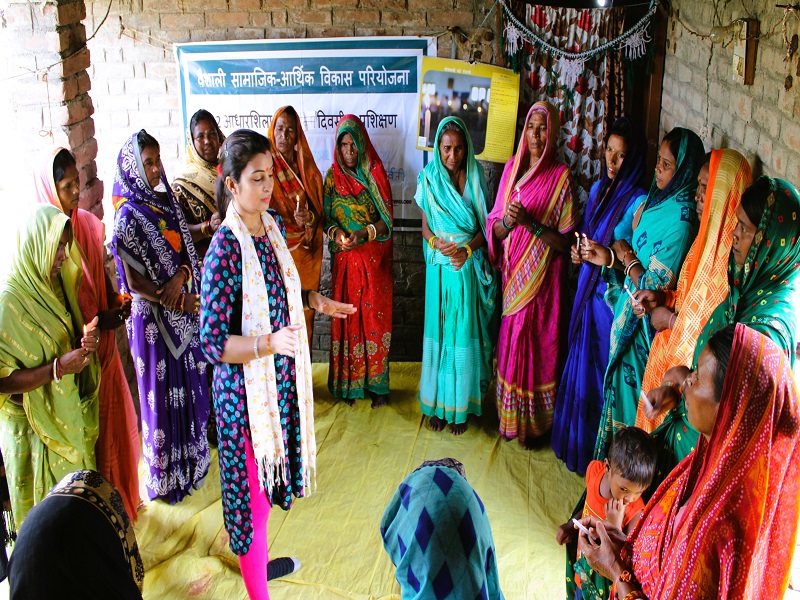Community Engagement Model
ASSET&W’s community development model strengthens the social, economic, and ecological fabric of a community and livestock play a central role in our work, both as a strategy for alleviating poverty and achieving food security and proper nutrition. We are also committed to adopting and promoting livestock production solutions that are ‘climate-smart’, as recommended by the Food and Agricultural Organization (FAO) of the United Nations (UN). Climate Smart Livestock Management practices are practiced in ASSET&W project communities. Besides, we leverage new technology innovations and cost reductions, donations, and impact capital to assist small-scale farmers on the path to a sustainable living income, this includes access to affordable renewable power, water, and internet services.
Trainings
ASSET&W provides high-quality livestock, training and related support to men, women, youth, and communities to assist with food security and to improve livelihoods. By combining the provision of livestock with training in animal husbandry, natural resource management, leadership skills and gender equity.
Increase Sustainable Animal Production
ASSET &W aims to end hunger and poverty while caring for the earth, this involves training smallholder and marginal farmers to help themselves; to move their families out of vulnerability and on to subsistence and ultimately to sustainability. It is, therefore, critical that the smallholder farm family increases efficiency of livestock production to the level that will enable them to compete in markets and as well as to meet the nutritional requirements of their family Improved Animal Resource Management.


Improved Animal Management (IAM)
The purpose of Improved Animal Management (IAM) training is to equip community members with skills, and knowledge necessary for appropriate animal management practices for increasing the production and productivity of their animals. This training will help participants to understand the basic minimum requirements for improved animal management, identify the gaps in their existing animal management practices and make plans for the improvements
IAM trainings focus on building capacity of community members on improved animal housing, animal nutrition, animal health and breeding. Farmer field schools are conducted for promotion and adoption of best practices. Continuous action research is conducted for discovering the most appropriate housing, feeding and other management practices in the most efficient production system for different levels of farmers and different ecological belts. Training materials are contextualized and developed to promote Improve Animal Management practices in the community.
Improved Animal Nutrition and Natural Resource Management
ASSET&W promotes the concept of feeding low-cost home-made formulations such as balanced concentrate feed, mineral blocks, and high protein supplemental feed (e.g., Azolla/Mulberry) to livestock for improving the production parameters of the animals. To minimize feed wastage use of improved separate feeder for the animals are introduced. Providing water in waterer is a basic practice in ASSET & W programs for efficient utilization of resources. ASSET&W is promoting improved practice of “cut and carry” fodder and feed livestock at home. In this regard, we promote plantation activities. To address challenges of smaller land holding, plantation of fodder is promoted. Through this mechanism, vegetative growth in plants can be promoted leading to interloping over time. Community Nurseries and Community Fodder Banks are promoted to address the fodder requirements in the locality.
Building Social Capital
ASSET&W promotes Heifer International’s 12 Cornerstone training and the Passing on the Gift model to build strong social capital at the grassroots level. Through this training while the community is empowered with the values of social harmony and rewards of gifting, collectivization for trade is promoted at the community level.
Passing on the Gift® (POG) is a unique tool, adopted and contextualized from Heifer International’s approach to sustainable development. Project participants agree to share the skills and resources received (e.g. seeds, offspring of animals, etc.), with other members of the community who are in need. This unique developmental tool multiplies the benefit of the original resources and creates resilience and sustainability in communities.
Community Animal Health Entrepreneurs (CAVE)
To maintain animal health systematically and to reduce mortality, Community Animal Health Entrepreneurs (CAVE) are promoted at village level. They are a cadre of entrepreneurs (specially trained women), who in consultation with Government Veterinarians help farmers raise healthy animals and maximize their benefits. CAVEs provide animal management and preventive vet-care service at the doorstep of livestock rearers, as and when required. They facilitate/ensure that every household have proper animal housing, fodder cultivation, proper feed with nutrient ingredients, disease identification and regular deworming and vaccination.